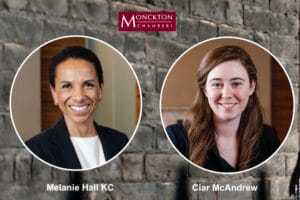
The Upper Tribunal allowed an appeal brought by Illuminate Skin Clinics Limited, a GMC-registered medical practice offering a range of aesthetic skin care and wellness treatments, including treatments for collagen loss, excess fat, Botox and dermal fillers. The full decision can be found here.
Describing the appeal as giving rise to important and difficult points of law in what became a lead case, behind which a number of similar cases are stayed, the Upper Tribunal expressed the hope that its decision would provide much-needed guidance for other businesses in the sector. Different approaches had previously been taken by the FTT in various cases concerning the meaning of the term medical care in the context of cosmetic procedures – an issue that had not previously been considered by the Upper Tribunal.
The appeal succeeded on the basis that the FTT had confined its assessment of the therapeutic purpose of the care provided by the Appellant within too narrow a compass, contrary to the relevant case law. The Upper Tribunal concluded that the FTT’s expectations as to how a diagnosis might be evidenced was too high and over-generalised. It allowed the appeal, set aside the FTT’s decision, and remitted it to the FTT, with clear guidance on the approach to be adopted on reconsideration: In summary, the supply in question must be made by a registered person and must have a therapeutic purpose. The assessment of a suitably qualified medical practitioner is significant in identifying that purpose. That practitioner is not obliged to elaborately record a diagnosis. Where a supply has both a therapeutic purpose and a cosmetic purpose, it is necessary to identify the principal purpose. That will involve a multi-factorial analysis which is likely to include consideration of the factors listed by the Upper Tribunal in its decision. Paragraphs 104 and 105 record the approach to be adopted in future cases.
Melanie Hall KC and Ciar McAndrew of Monckton Chambers represented the Appellant.